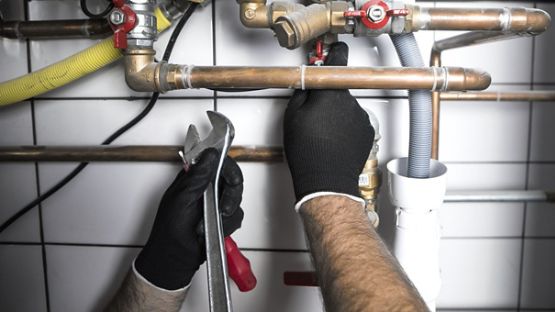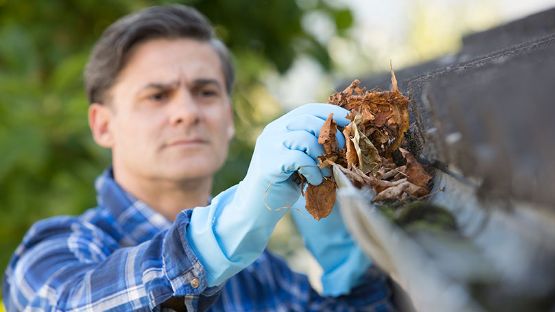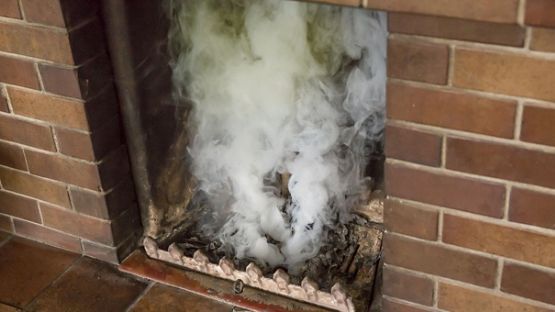Your condo is a place you call home. To keep your unit in tip-top shape, regular upkeep and checks around your space can help make sure everything is well-maintained and in good working order.
Cleaning essentials
- Showerheads, faucets and sinks: Daily use of showerheads, faucets and sinks can create buildup and grime. Scrub showerheads with a toothbrush for a deep clean and wipe down your faucets and sinks with a damp cloth and a mild cleanser.
- Drains: Your drains can cause a lot of plumbing issues, particularly when they clog. Remember to use sink strainers to prevent food and debris from going down the pipes and follow proper oil and grease disposal. You may also want to give your drains a good clean with white vinegar to break up mineral water deposits.
- Windows: Dust off stubborn dirt from window blinds and shades at least once a week and use a squeegee to wash interior window frames and remove mildew spots.
Safety checks
- Fire safety devices and equipment: Your condo unit should be equipped with a fire extinguisher and a working fire alarm system. Regularly check these for any damages, including wear and tear, missing locking pins, or broken nozzles. Replace them when necessary, so that they’re usable in the event of a fire.
- Water pipes: Regularly inspect water pipes to see if there’s anything loose or cracks that could cause unnecessary leaks. Water prevention devices, such as leak detectors are an effective solution to quickly alert you of potential leaks around the house. You can put them near toilets, dishwashers or laundry machines.
- Door locks: Clean and lubricate the locks on your doors to ensure that they work properly. Check hinges and screws to make sure that they’re intact and aligned – you shouldn’t have to push, pull, or lift doors to lock them correctly.
- Electrical wiring: Faulty wiring can cause fires, so it’s important to always keep an eye out for old, frayed, or damaged wires. Once in a while, hire an electrician to professionally inspect your electrical system to ensure everything is wired correctly.
Furniture and appliances
- Fridge: Declutter, clean and organize your fridge occasionally to remove any rotten food. Watch out for any unusual sounds or leaks, and regularly check the different settings of your fridge to make sure they’re working properly.
- Washing machine and dryer: Once a month, you can use white vinegar on an empty wash cycle to help clean away any potential mildew in your washing machines. It’s also a good idea to check the water hoses from your laundry machine for any cracks, leaks or bulges and replace them if there are issues. For your dryer, make sure to check the dryer vents and clear out any lint build-up to help prevent accidental fires.
- Dishwasher: Using white vinegar every few months on an empty hot wash cycle can help decrease buildup such as food, mineral deposits, etc.) and keep your appliance clean. Be sure to also clean the dishwasher’s seal or gasket to avoid any leaks.
- Air conditioner (AC): If you have an AC unit, make sure to clean out the air filter from time to time to keep the air fresh and clean. This can also help maintain optimal function and prevent accidental fires. Speak with your condo corporation or property manager to see if they offer regular filter changes.
- Carpets and rugs: Dust and dirt can accumulate on carpets and rugs quickly. Even if they don’t look dirty, a quick vacuum once or twice a week can help keep things clean. You may also want to consider hiring a professional or renting a carpet cleaner from your local home improvement store to deep clean your carpet once in a while too.
- Sofas, pillows and mattresses: Like carpets and rugs, your sofas, pillows, and mattresses should be vacuumed or laundered at least once a month to remove dust mites and clean any spills or stains.
Once you’ve checked off your maintenance checklist for condo owners, explore more tips on sustainable living and what to consider when downsizing from a house.













